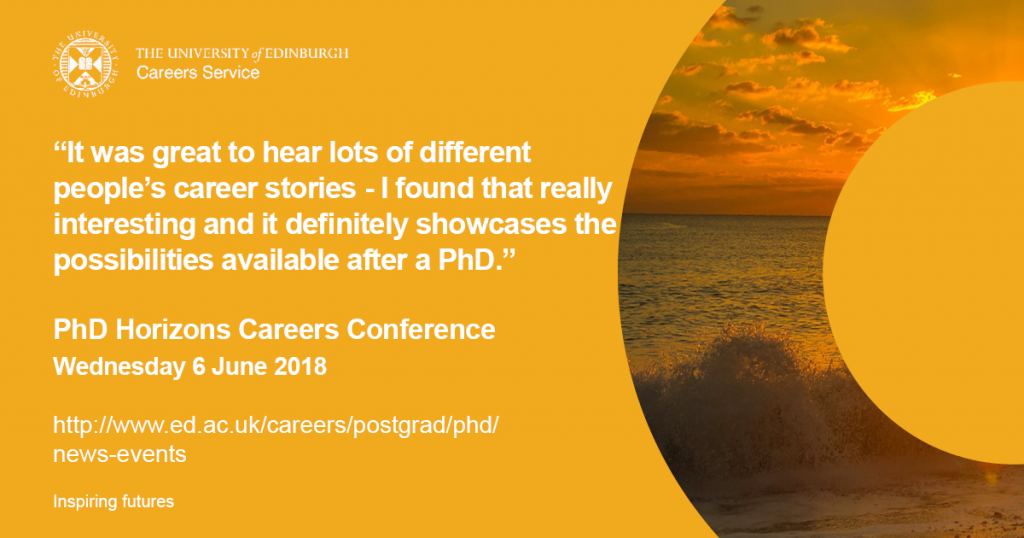
In this post, Ana Fialho, a PhD Physics student and PhD Horizons Careers Conference Intern, shares her views on an event that aims to show postgraduate students the career potential of holding a PhD degree….
More than half of PhD graduates in the UK pursue a career outside of academia[1]. This means that around 50% of PhD graduates are effectively going through a career change at the end of their degrees (with the exception perhaps of those who will go on to do research in private institutions). By the time they graduate, students will have spent the last three to four years conducting research in an academic environment and, in most cases, the previous four to five years studying for their first degrees. The numbers add up to nearly a decade spent at University. And, during that period, most of the professors, mentors, and colleagues they have encountered are also likely to be lifelong scholars with very little non-academic professional experience. Faced with this reality, it is important to ask whether PhD students are well prepared to make decisions about their future careers and to pursue a job in an environment that is mostly unknown to them.
The PhD Horizons Careers Conference is a great place for PhD students to find out more about their future career options. The conference is organised yearly by the Edinburgh University Careers Service, and gathers PhD holders who have transitioned into a wide range of occupations and are happy to share their experience with current students.

I first attended the PhD Horizons conference in June 2017, when it was in its third edition. During the day, I attended the different panels and Q&A sessions, and listened to the speakers’ inspiring stories. And so I started to absorb the very clear “take home” message:
The range of careers options available to PhD graduates is vast.
The skills acquired during a PhD are valued in the job market.
The realisation of these two very simple points ignited an internal reflection about my career prospects. It would not be without effort, but should I decide to “leave” academia, I had options… I had not been wasting my time pursuing an advanced degree, but I had developed a range of skills that employers would find valuable.
In early 2018, now officially in the last year of my degree, I applied for the position of PhD Horizons Careers Conference Intern. I wanted to dive deeper into this critical topic, and do my part to help other PhD students reach the same conclusions that had given me confidence a year ago. Last month, the fourth PhD Horizons Careers Conference took place. Over 160 students, across all subject areas and years of study, attended.
Being behind the scenes as an intern helped me understand how students were responding to the event. Overwhelmingly, they wanted more: more speakers, more subjects, more employer representation and over more geographical locations. The feedback also expressed the students’ appreciation for hearing the speakers narrate their career decisions and the reasons that motivated them. Finally, students requested further guidance on the practicalities involved in these career transitions. They wanted to know more about the application processes, what employers are looking for, and how to make their skillset standout in a CV.
While it would be impossible for a modest one-day conference to fulfil every student’s career guidance needs, I believe this initiative is a great starting point. I expect that, like me, other students have left with the conviction that whatever their choices and priorities are, they can build a bright and successful career. I also hope that the University continues to organise events like this and to work with PhD students to advise them on the importance of career planning from the early stages of their degrees.
You can find the notes and videos from the conference here.
[1]Data about the early career pathways of researchers has been collected by the Higher Education Statistics Agency on systematic surveys to UK and EU nationals graduating from UK institutions.


